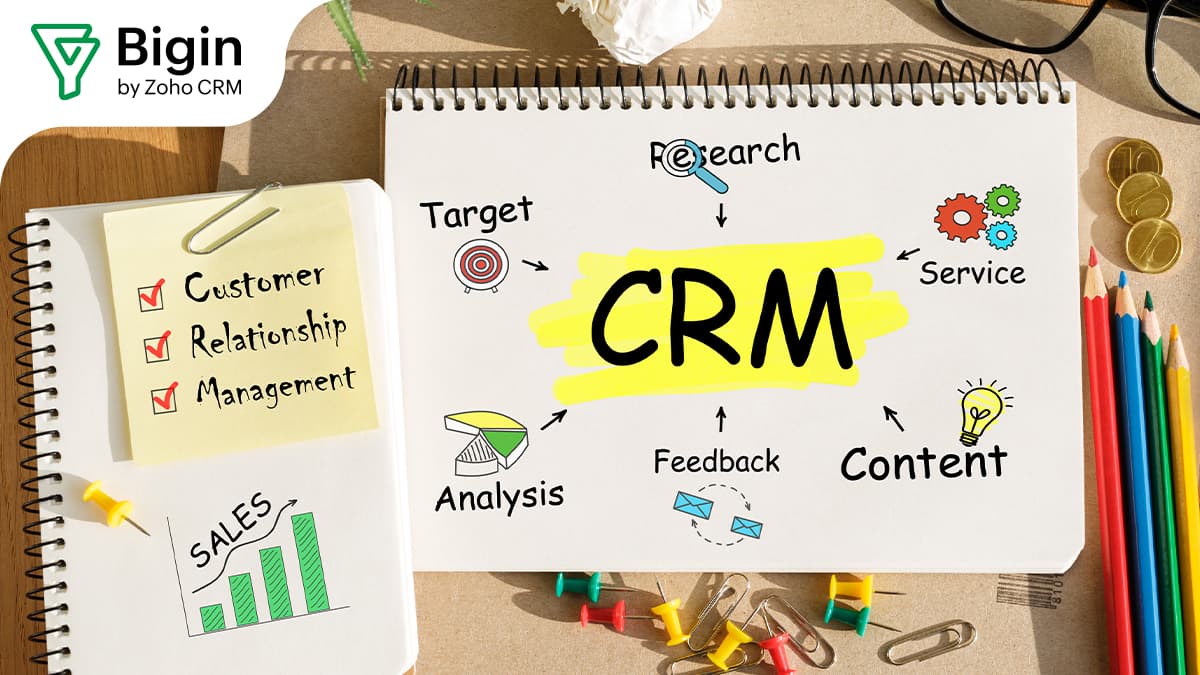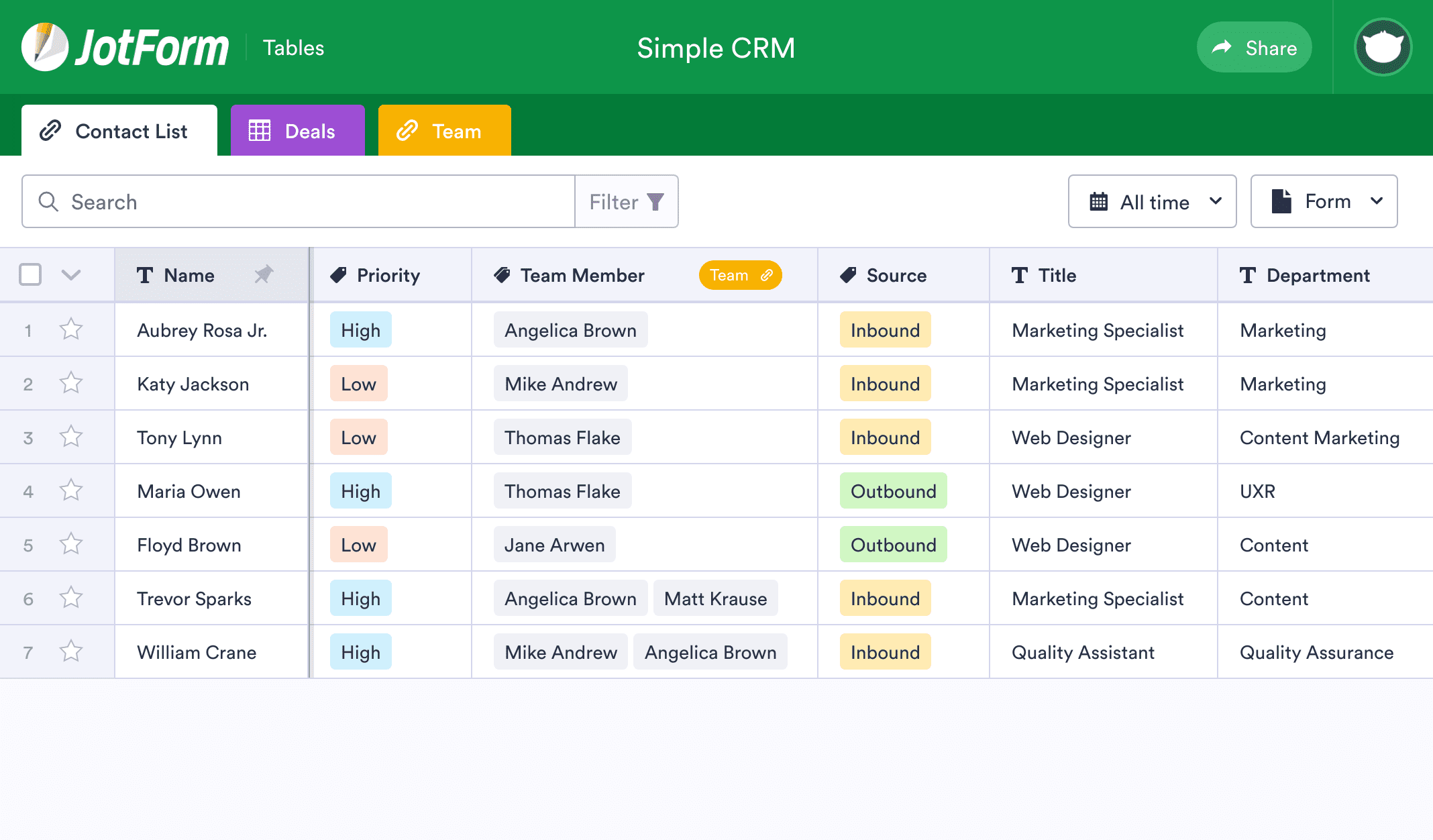As basic CRM for small business takes center stage, this opening passage beckons readers with casual formal language style into a world crafted with good knowledge, ensuring a reading experience that is both absorbing and distinctly original.
Basic CRM systems are designed to meet the unique needs of small businesses, offering a streamlined and affordable solution to manage customer relationships and streamline operations. By implementing a basic CRM, small businesses can unlock a wealth of benefits, including improved customer satisfaction, increased sales efficiency, and enhanced productivity.
CRM Overview for Small Businesses
Customer Relationship Management (CRM) systems are essential tools for businesses of all sizes. They help businesses manage their customer interactions, track sales, and improve customer service. For small businesses, CRMs can be especially beneficial, as they can help them streamline their operations and improve their customer relationships.
Key Benefits of a CRM for Small Businesses
There are many benefits to using a CRM for small businesses. Some of the key benefits include:
- Improved customer service:CRMs can help small businesses provide better customer service by giving them a centralized view of all customer interactions. This allows businesses to quickly and easily access customer information, such as past purchases, support tickets, and communication history. With this information, businesses can provide more personalized and efficient customer service.
- Increased sales:CRMs can help small businesses increase sales by providing them with tools to track and manage their sales pipeline. This allows businesses to identify and prioritize leads, track the progress of sales opportunities, and close deals more quickly.
- Streamlined operations:CRMs can help small businesses streamline their operations by automating many tasks, such as lead generation, email marketing, and customer support. This can free up valuable time for business owners and employees, allowing them to focus on more important tasks.
- Improved decision-making:CRMs can help small businesses make better decisions by providing them with data and insights into their customer base. This data can be used to identify trends, track customer behavior, and develop more effective marketing and sales strategies.
Features to Consider in a Basic CRM: Basic Crm For Small Business
For small businesses, a basic CRM can be a game-changer, providing tools to manage customer relationships and streamline sales processes. When selecting a CRM, it’s crucial to consider essential features that align with your business needs.
Core features to look for include contact management, lead tracking, and sales pipeline management. These capabilities empower businesses to effectively track customer interactions, monitor sales opportunities, and nurture relationships.
Contact Management
Contact management is the foundation of any CRM. It allows businesses to store and organize customer information, including contact details, communication history, and preferences. This centralized data repository enables teams to easily access and update customer profiles, ensuring seamless communication and personalized interactions.
- Centralized customer data for easy access and management.
- Automated contact updates to maintain accurate records.
- Segmentation and filtering capabilities to target specific customer groups.
Lead Tracking
Lead tracking empowers businesses to capture, qualify, and nurture potential customers. A basic CRM provides tools to track lead sources, interactions, and progress through the sales funnel. By monitoring lead behavior, businesses can identify promising opportunities and prioritize follow-ups.
- Lead capture forms to collect customer information.
- Automated lead scoring to prioritize qualified leads.
- Customized sales pipelines to track lead progression.
Sales Pipeline Management
Sales pipeline management provides a visual representation of the sales process, allowing businesses to track the status of deals and identify potential bottlenecks. A basic CRM offers features to create custom sales stages, assign tasks, and monitor progress towards closing deals.
- Visual pipeline dashboards for real-time deal tracking.
- Automated deal notifications to stay informed of key milestones.
- Sales forecasting capabilities to predict revenue and optimize resource allocation.
Benefits of Using a Basic CRM

Basic CRMs offer a range of benefits for small businesses, including improved customer satisfaction and loyalty, increased sales efficiency, and enhanced productivity. These benefits stem from the ability of CRMs to organize and manage customer data, automate tasks, and provide insights into customer behavior.
Improved Customer Satisfaction and Loyalty, Basic crm for small business
By centralizing customer data and providing a comprehensive view of each customer’s interactions with the business, basic CRMs enable small businesses to provide more personalized and responsive service. This can lead to increased customer satisfaction and loyalty, as customers feel valued and understood.
Increased Sales Efficiency and Productivity
Basic CRMs can streamline sales processes by automating tasks such as lead tracking, scheduling appointments, and sending follow-up emails. This frees up sales reps to focus on more strategic activities, such as building relationships with customers and closing deals. Additionally, CRMs provide real-time visibility into the sales pipeline, allowing managers to track progress and identify opportunities for improvement.
Data and Case Studies
Numerous studies have demonstrated the positive impact of CRMs on small business performance. For example, a study by Salesforce found that businesses that use a CRM see an average increase in sales of 29%. Another study by Nucleus Research found that CRMs can improve sales productivity by up to 30%.
Implementation and Integration
Implementing a basic CRM effectively involves careful planning and execution. Here’s how to get started:
Begin by defining clear goals and objectives for your CRM implementation. This will help you determine the specific features and functionality you need.
Data Migration
Data migration is crucial for transferring existing customer data from your old system to the new CRM. Ensure that the data is accurate, complete, and properly formatted.
Training
Provide comprehensive training to your team on how to use the CRM effectively. This includes both initial training and ongoing support.
Integration
Integrate your CRM with other business systems, such as accounting or marketing software. This will streamline your operations and provide a comprehensive view of your customers.
Best Practices for CRM Usage

Implementing a CRM is only the first step towards enhanced customer relationship management. To maximize its benefits, businesses must adopt best practices for managing customer data, nurturing leads, and leveraging analytics for continuous improvement.
Effective CRM usage involves a systematic approach to data management, lead engagement, and performance evaluation. Here are some key best practices to consider:
Managing Customer Data
- Centralize customer information:Consolidate all customer data, including contact details, purchase history, interactions, and preferences, into a single, accessible repository.
- Maintain data accuracy:Regularly verify and update customer information to ensure its accuracy and completeness. This includes addressing duplicate records and resolving inconsistencies.
- Categorize and segment customers:Group customers based on shared characteristics, demographics, or behavior patterns to tailor marketing and sales efforts.
- Track customer interactions:Capture and record all customer touchpoints, including phone calls, emails, website visits, and social media interactions, to build a comprehensive customer profile.
Effective Lead Nurturing and Sales Follow-up
- Qualify leads:Use lead scoring and other techniques to identify and prioritize leads with the highest potential for conversion.
- Nurture leads:Engage with qualified leads through personalized email campaigns, content marketing, and targeted advertising to educate them and build relationships.
- Automate follow-up:Use CRM automation tools to streamline follow-up processes, such as sending reminder emails or scheduling appointments.
- Track lead progress:Monitor the progress of leads through the sales pipeline and identify opportunities for intervention or acceleration.
Using Reporting and Analytics to Improve CRM Effectiveness
- Establish key performance indicators (KPIs):Define specific metrics that measure the success of CRM initiatives, such as lead conversion rates, customer satisfaction, and revenue generated.
- Generate reports:Use CRM reporting tools to extract data and generate reports on customer behavior, sales performance, and other relevant metrics.
- Analyze data:Identify trends, patterns, and insights from CRM data to inform decision-making and improve CRM strategies.
- Make data-driven decisions:Use insights from CRM analytics to optimize lead nurturing campaigns, improve sales processes, and enhance customer service.
Pricing and Comparison

When choosing a basic CRM solution for your small business, it’s important to consider the pricing and compare different options. Factors to consider include features, scalability, and support. Here’s a brief overview of the pricing and key differences between popular CRM options:
Pricing Comparison
- HubSpot CRM:Free plan available, paid plans start at $45/month.
- Salesforce Essentials:Starts at $25/month per user.
- Zoho CRM:Free plan available, paid plans start at $12/month per user.
- Freshsales:Free plan available, paid plans start at $15/month per user.
- Insightly:Free plan available, paid plans start at $29/month per user.
Factors to Consider
- Features:Determine the essential features you need, such as contact management, lead tracking, and sales pipeline management.
- Scalability:Consider the potential growth of your business and choose a CRM that can scale with you.
- Support:Evaluate the level of support offered, including phone, email, and chat.
- Integrations:Ensure the CRM integrates with your other business tools, such as email marketing and accounting software.
Closure
In conclusion, basic CRM for small business is an invaluable tool that empowers businesses to build stronger customer relationships, streamline operations, and achieve greater success. With its user-friendly features, affordable pricing, and ease of implementation, basic CRM is a must-have for any small business looking to elevate its customer management and drive growth.
Key Questions Answered
What are the key benefits of using a basic CRM for small business?
Basic CRMs offer a range of benefits for small businesses, including improved customer satisfaction, increased sales efficiency, and enhanced productivity.
What are the essential features to look for in a basic CRM?
Essential features of a basic CRM for small businesses include contact management, lead tracking, sales pipeline management, and reporting.
How much does a basic CRM cost?
The cost of a basic CRM varies depending on the provider and the features included. However, many basic CRM solutions are affordable for small businesses.